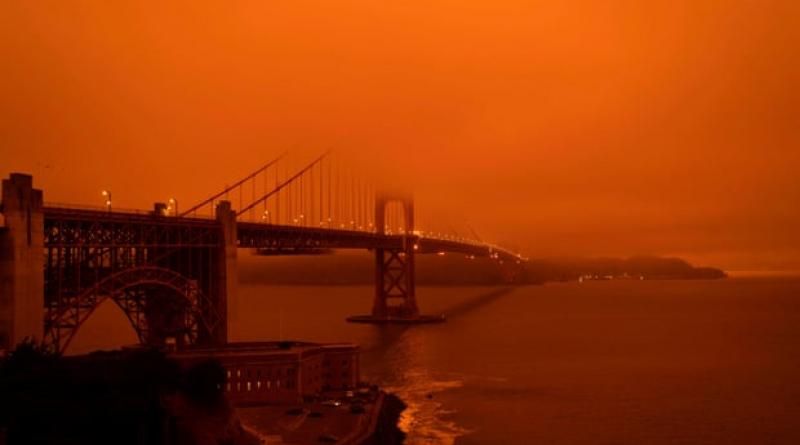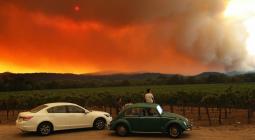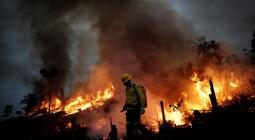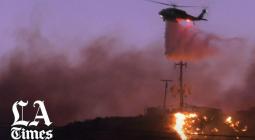US wildfires could spark financial crisis, advisory panel finds.

Home values, state tourism and local governments could be damaged, causing defaults and market disruptions.
The devastating wildfires now sweeping across the western US are among the sparks from climate change that could ignite a financial crisis by damaging home values, state tourism and local government budgets, an advisory panel to a US markets regulator found.
Those effects could set off a cascade of events including defaults and market disruptions, undermining the economy and sparking a crisis, according to a report from the Commodity Futures Trading Commission (CFTC).
More than 85 significant fires are currently burning across the west, destroying communities in California, Oregon and Washington state.
“As we’ve seen in the past few weeks alone, extreme weather events continue to sweep the nation, from the severe wildfires of the west to the devastating midwest derecho and damaging Gulf coast hurricanes. This trend – which is increasingly becoming our new normal – will likely continue to worsen in frequency and intensity as a result of a changing climate,” said Rostin Behnam, CFTC commissioner.
“Beyond their physical devastation and tragic loss of human life and livelihood, escalating weather events also pose significant challenges to our financial system and our ability to sustain long-term economic growth,” said Behnam.
The CFTC sees climate change impacting the US economy in several major ways.
First, global warming is making the western US hotter and drier, with wildfires more frequent and intense, scientists say.
Economists have traditionally seen natural disasters like wildfires as localized shocks. That’s changing, according to the report, produced by a 35-member panel for the CFTC. The group included representatives of major oil companies, banks and asset managers.
Cal Fire, California’s firefighting agency, says about 3m of the state’s 12m homes are at high risk from wildfires.
That designation hurts home values, which in turn increases mortgage default risk, research cited by the report suggested.
More defaults would damage banks, mortgage holders and markets where mortgages are sold. Securities based on mortgages were a trigger for the 2007-2009 financial crisis.
After 2018, California’s worst fire season on record so far, in terms of loss of life and property, some insurers balked at renewing homeowner policies, forcing a record number of owners to turn to pricey policies from the state’s insurer of last resort.
Expensive insurance also depresses home prices, said former California insurance regulator Dave Jones, a contributor to the CFTC report.
“You can tell the same story in terms of sea level rise and flooding and more intense storms and their impact on residential real estate value,” said Jones, now a senior director at the Nature Conservancy.
In turn, lower home values reduce cities’ real estate tax revenue and impair their ability to repay debt, potentially leading to bond defaults.
Fire-related business disruptions such as a drop in tourism that slashed sales and lodging tax revenue could also hurt municipal finances.
Stresses could build in the US financial system in what the report termed “a systemic crisis in slow motion”.
Many Californians are experiencing orange skies, and shots such as darkened skies over San Francisco’s famous Golden Gate Bridge were beamed to television screens around the world, for example.
Climate catastrophes can make investors aware of risks not priced into markets, the report said, and this can “trigger a disorderly repricing of assets, which could have cascading effects on portfolios and balance sheets and, therefore, systemic implications for financial stability”.
“The central message of this report is that US financial regulators must recognize that climate change poses serious emerging risks to the US financial system, and they should move urgently and decisively to measure, understand, and address these risks,” the report concludes.
10 September 2020
The Guardian







